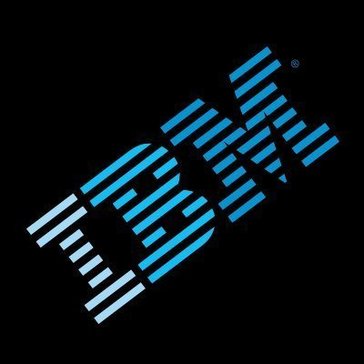
Amazon MQ
Amazon MQ is a managed message broker service that streamlines the process of setting up and operating Apache ActiveMQ in the cloud. By supporting industry-standard APIs, it enables seamless integration of diverse applications. With features like active/standby configurations and automatic version upgrades, it ensures low-latency event processing for timely information delivery.
Top Amazon MQ Alternatives
Azure Scheduler
Azure Scheduler is a robust message queue software designed to streamline communication between applications by managing the scheduling and delivery of messages.
Apache ActiveMQ
Apache ActiveMQ serves as a robust message queue software that facilitates effective communication between distributed applications.
Apache Kafka
Trusted by over 80% of Fortune 100 companies, Apache Kafka serves as a robust open-source event streaming platform.
IBM MQ on Cloud
IBM MQ on Cloud delivers secure and reliable messaging across multiple clouds, enabling organizations to focus on application integrations.
IBM MQ
IBM MQ v9.4.2 revolutionizes messaging with innovations like Native HA in Containers and Cross Region Replication.
Azure Queue Storage
Azure Queue Storage provides durable, cost-effective message queuing tailored for large-scale workloads.
Amazon Simple Queue Service (SQS)
With FIFO queues, it ensures messages are processed in the correct order, enhancing system reliability...
Red Hat AMQ
Leveraging open source technologies like Apache ActiveMQ and Kafka, it enables real-time communication and connectivity...
KubeMQ
With a user-friendly interface and an extensive range of connectors, it facilitates instant integration without...
Anypoint MQ
As part of the Anypoint Platform™, it supports diverse environments and business groups, incorporating role-based...
Robot Console
It actively monitors message queues and system resources, swiftly addressing issues that could disrupt operations...
Apache Qpid
This compatibility with various languages and platforms fosters a rich, interconnected messaging environment, enabling developers...
Apache Pulsar
Its multi-tenant architecture supports rapid scaling across hundreds of nodes, ensuring resource separation and efficient...
IBM Compose for RabbitMQ
With automatic scaling, high availability, and simplified deployment, developers can easily integrate RabbitMQ into their...
FioranoMQ
It boasts the industry’s fastest JMS messaging engine, ensuring low latency and high throughput...
Amazon MQ Review and Overview
Message brokers are inter-application communication and information exchange software that let individual systems interact with each other despite being in different language framework and on separate platforms. For a reliable delivery and storage in the cloud architecture, you need a robust solution like Amazon MQ. It is an open-source message broker service that you can use for Apache ActiveMQ. Its industry standard-compliant APIs and protocols help to activate and control the production-ready message broker service instantly in a cloud.
A fully managed message broker offering a smooth migration
Getting started with the message broker takes only a few minutes with Amazon MQ’s AWS Management Console, CLI, API, and cloud formation. You can easily connect your existing applications to it without the requirement of extra hardware or installation of Apache ActiveMQ. JNS, MQTT, WebSocket, NMS, etc. are already put to use in Amazon MQ. So, from any broker using these standard messaging APIs and protocols, you can easily migrate to Amazon MQ. Once you update the endpoints of your current message broker to exchange information with Amazon MQ, you can begin to send messages, thus, reducing your operational load.
A durable option with advanced failure detection
Amazon Web Services are known for their robust architecture and improved performance. Amazon MQ runs on the same build, thus, offering high availability. Messages are accumulated across multiple Availability Zones by durable message brokers. In case of broker or AZ fail, which occurs almost when you connect brokers to any network, you will continue to send or receive messages, thanks to Amazon MQ’s 99.9% SLA performance for active-standby brokers. Also, the Integration with Amazon CloudWatch helps you analyze your log and metric data. It sets off alarms for potential threats or failures, thereby helping in timely recovery.
Experience high throughput with minimum latency
Enjoy latency as low as only a few digital milliseconds with Amazon MQ. The connection is always active, so, in no time, you can publish a message and have it received on the other end. The Amazon Elastic Block Store (EBS) comes to the rescue when it is about delivering high throughput optimizations for stock trading, excess volume order, and text processing, etc. It makes the service go easy on your pocket, now that you won’t need massive quantities of message brokers.Top Amazon MQ Features
- Low latency event processing
- Active/standby broker configurations
- Clustered broker deployment
- Seamless on-premises migration
- Lambda function integration
- Supports multiple messaging protocols
- Automatic version upgrades
- Simplified broker management
- Industry-standard APIs compatibility
- Easy application connectivity
- Scalable message delivery
- High availability architecture
- Cross-platform communication support
- Managed ActiveMQ service
- Simplified operational overhead
- Secure message transmission
- Customizable message retention policies
- Integrated monitoring and logging
- User-friendly console interface
- Flexible pricing options














